The Power Of Impact: Energy Released During Asteroid Strikes

Introduction
Asteroids are small rocky bodies that orbit around the sun, and they have been a source of fascination and scientific study for many years. These celestial objects can have significant impacts on the Earth when they collide with our planet’s surface. In this article, we will explore the power of impact and the energy released during asteroid strikes.
The Basics of Asteroid Impacts
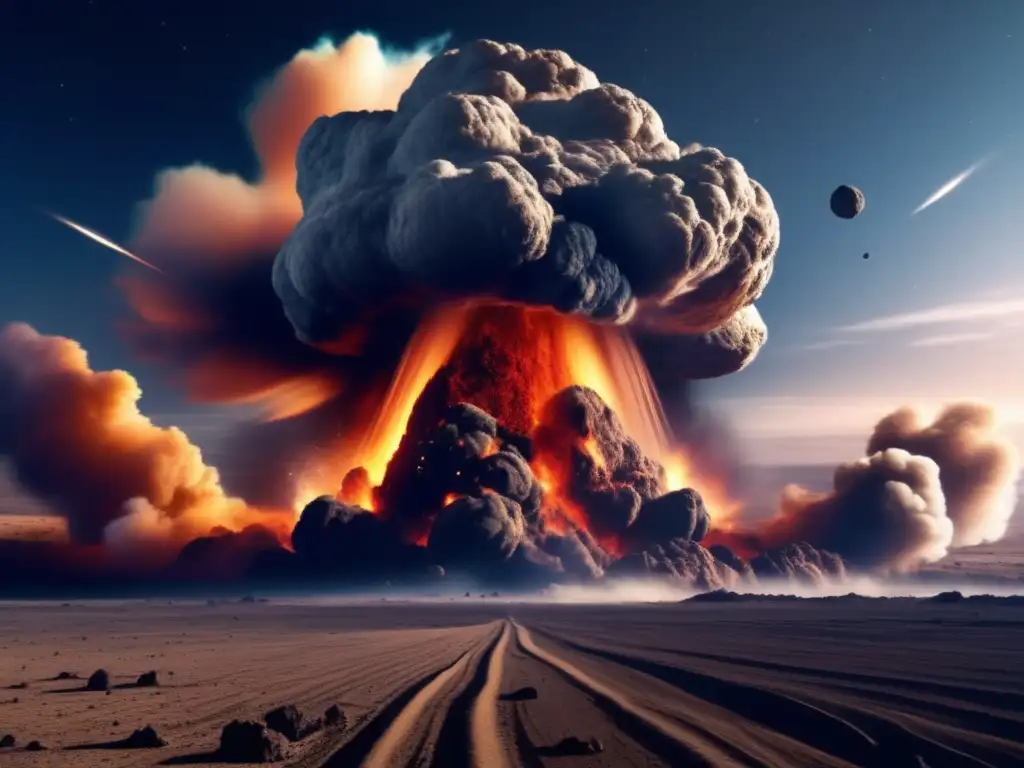
What happens during an asteroid impact?
When an asteroid collides with the Earth, it creates a crater and releases a tremendous amount of energy. The size of the crater and the amount of energy released depend on the size of the asteroid and its speed at impact. Some asteroids can release more energy than nuclear bombs when they strike the Earth.
What are the effects of an asteroid impact?
The effects of an asteroid impact can be catastrophic. The immediate effects include a shockwave, intense heat, and fire. The long-term effects include a change in the Earth's climate, extinction of plant and animal species, and alterations to the landscape.
How often do asteroid impacts occur?
Asteroid impacts are relatively rare events, but they do happen. On average, an asteroid larger than 1 kilometer in diameter collides with the Earth every million years or so. Smaller asteroids can also cause damage, but they are less likely to have a global impact.
The Energy Released During Asteroid Strikes
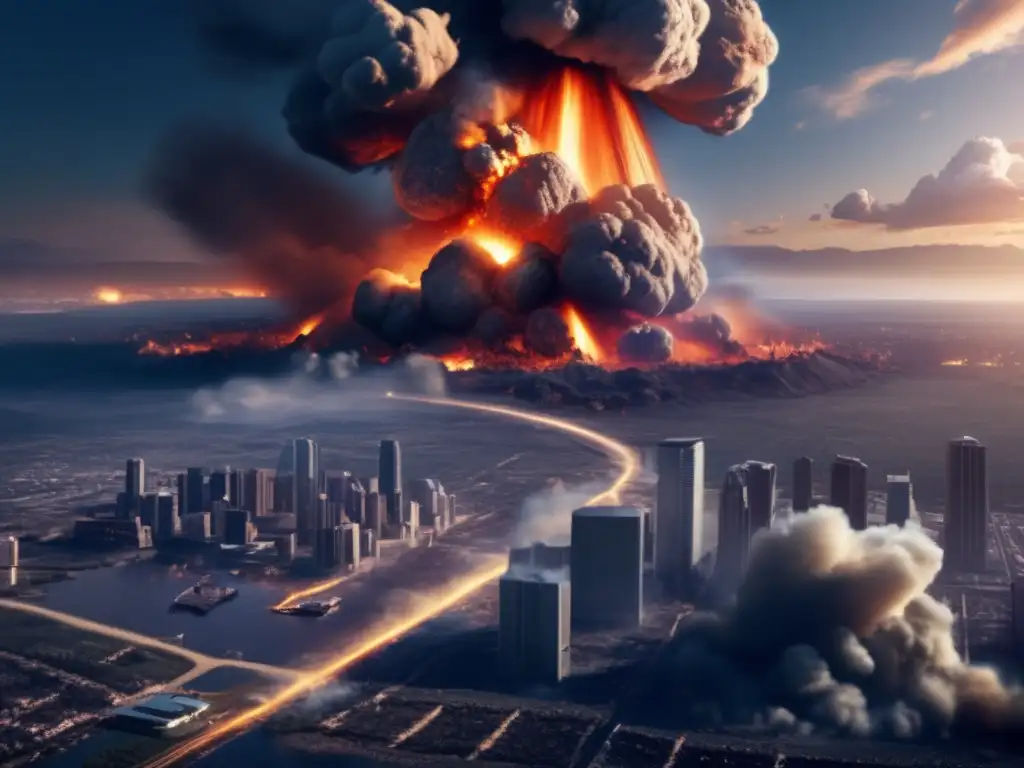
How is energy released during an asteroid impact measured?
The energy released during an asteroid impact is typically measured in joules or megatons of TNT. The energy released can range from a few kilotons to billions of megatons, depending on the size of the asteroid.
What is the largest known asteroid impact?
The largest known asteroid impact occurred about 2 billion years ago in what is now South Africa. The impact created a 300-kilometer-wide crater and released an estimated 10^23 joules of energy, which is equivalent to about 10 billion megatons of TNT.
What would happen if a large asteroid were to strike the Earth today?
If a large asteroid were to hit the Earth today, it could have catastrophic effects. The impact would release a tremendous amount of energy, creating a crater and causing widespread devastation. Depending on the size of the asteroid, it could also cause a global climate change and potentially lead to mass extinction.
The Planetary Defense Against Asteroid Impacts
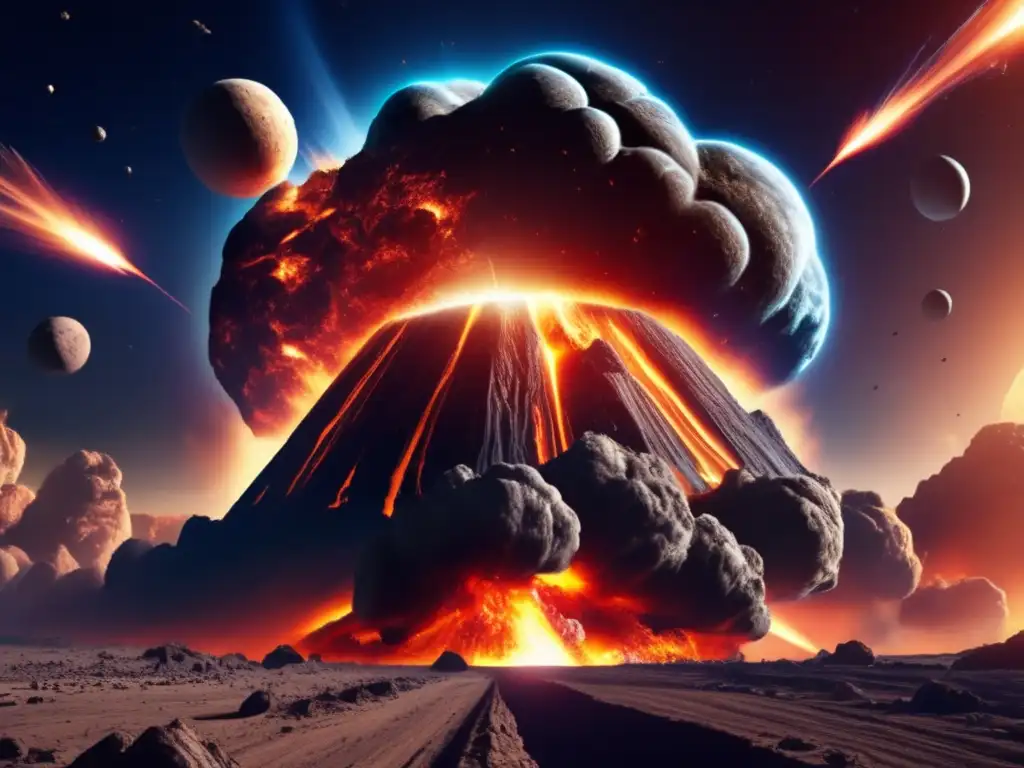
What measures are being taken to prevent asteroid impacts?
Scientists around the world are working on ways to prevent asteroid impacts. One approach is to deflect an asteroid's orbit away from the Earth by using a spacecraft to impact the asteroid or by using gravitational attraction. Another approach is to destroy the asteroid with a nuclear weapon.
How effective are these measures?
The effectiveness of these measures depends on the size and speed of the asteroid and the amount of time available before impact. Early detection is critical for any defense strategy to be successful.
Are there any international efforts to address the threat of asteroid impacts?
Yes, international organizations such as NASA and the European Space Agency are leading efforts to detect and track asteroids that could potentially collide with the Earth. Additionally, NASA has established a Planetary Defense Coordination Office to coordinate efforts with other countries and organizations around the world.
Frequently Asked Questions
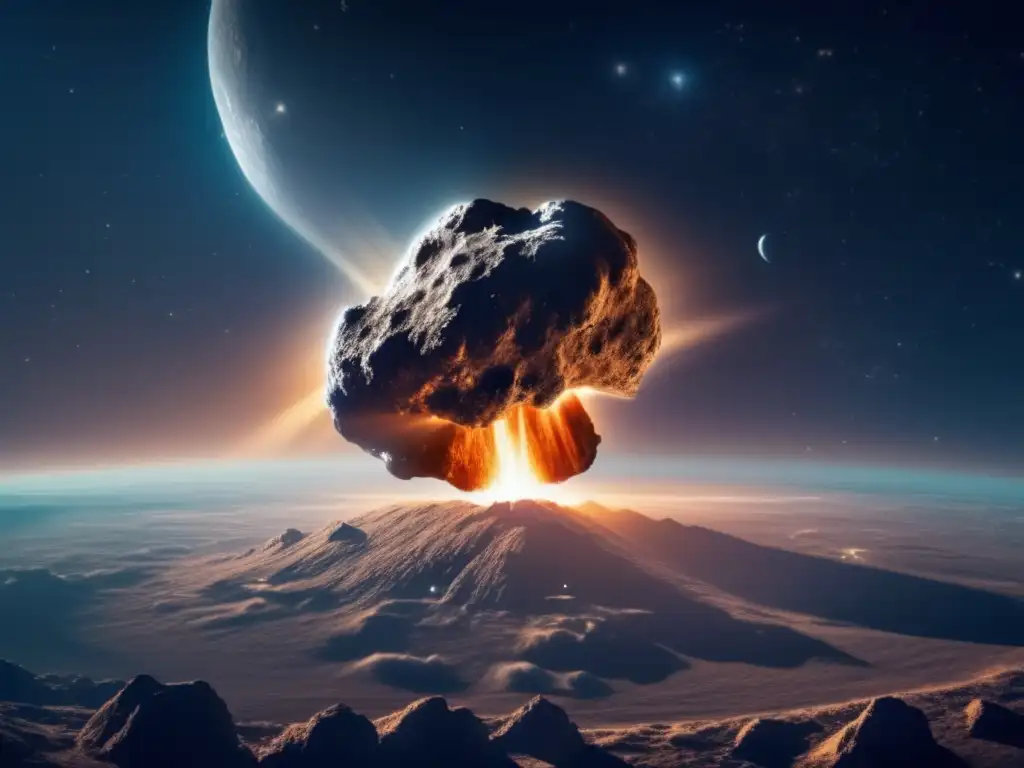
-
What is the difference between an asteroid and a meteor?
An asteroid is a small rocky body that orbits around the sun, while a meteor is a small piece of an asteroid or comet that burns up in the Earth's atmosphere.
-
Can we predict when an asteroid will strike the Earth?
Yes, scientists are constantly monitoring the skies for asteroids that could pose a threat to the Earth. Early detection is critical for any defense strategy to be successful.
-
What would happen if a small asteroid were to hit a city?
The impact of a small asteroid could cause significant damage and loss of life, depending on its size and speed at impact.
-
Are there any known asteroids that could potentially collide with the Earth in the near future?
Yes, there are several known asteroids that have the potential to collide with the Earth in the coming decades. However, none of these asteroids are expected to have a global impact.
-
What is the likelihood of an asteroid causing mass extinction?
The likelihood of an asteroid causing mass extinction is relatively low, but it has happened before. The most famous example is the asteroid impact that caused the extinction of the dinosaurs about 65 million years ago.
Conclusion
Asteroid impacts have the potential to cause catastrophic damage to our planet, as evidenced by the craters and impact sites that dot the Earth's surface. While these events are relatively rare, they highlight the importance of continued research and development of planetary defense measures. By working together, we can help protect our planet from the destructive power of these cosmic threats.
Thank you for reading this article on the power of impact and energy released during asteroid strikes. We invite you to share your thoughts in the comments section and to interact with Asteroid Realm by subscribing, sharing the article on social networks, or participating in other ways. Until next time!
Additional Resources
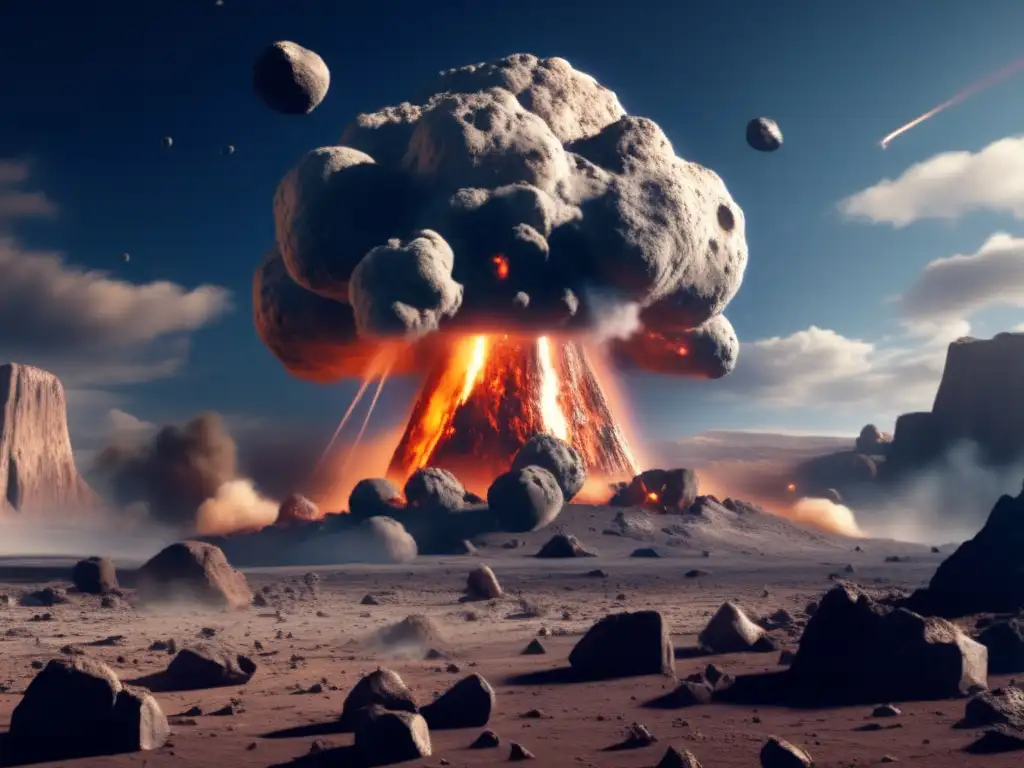
For more information on asteroids and their impact on the Earth, please visit the following resources:
- NASA Planetary Defense Coordination Office
- European Space Agency Near-Earth Objects
- American Meteor Society
 Cosmic Catastrophes: The Role Of Asteroids In Mass Extinctions
Cosmic Catastrophes: The Role Of Asteroids In Mass Extinctions Planetary Scars: A Global Tour Of Impact Craters
Planetary Scars: A Global Tour Of Impact Craters The Sky On Fire: The Atmospheric Effects Of Asteroid Impacts
The Sky On Fire: The Atmospheric Effects Of Asteroid ImpactsIf you want to discover more articles similar to The Power Of Impact: Energy Released During Asteroid Strikes, you can visit the Asteroid Impacts category.
Leave a Reply

Articulos relacionados: